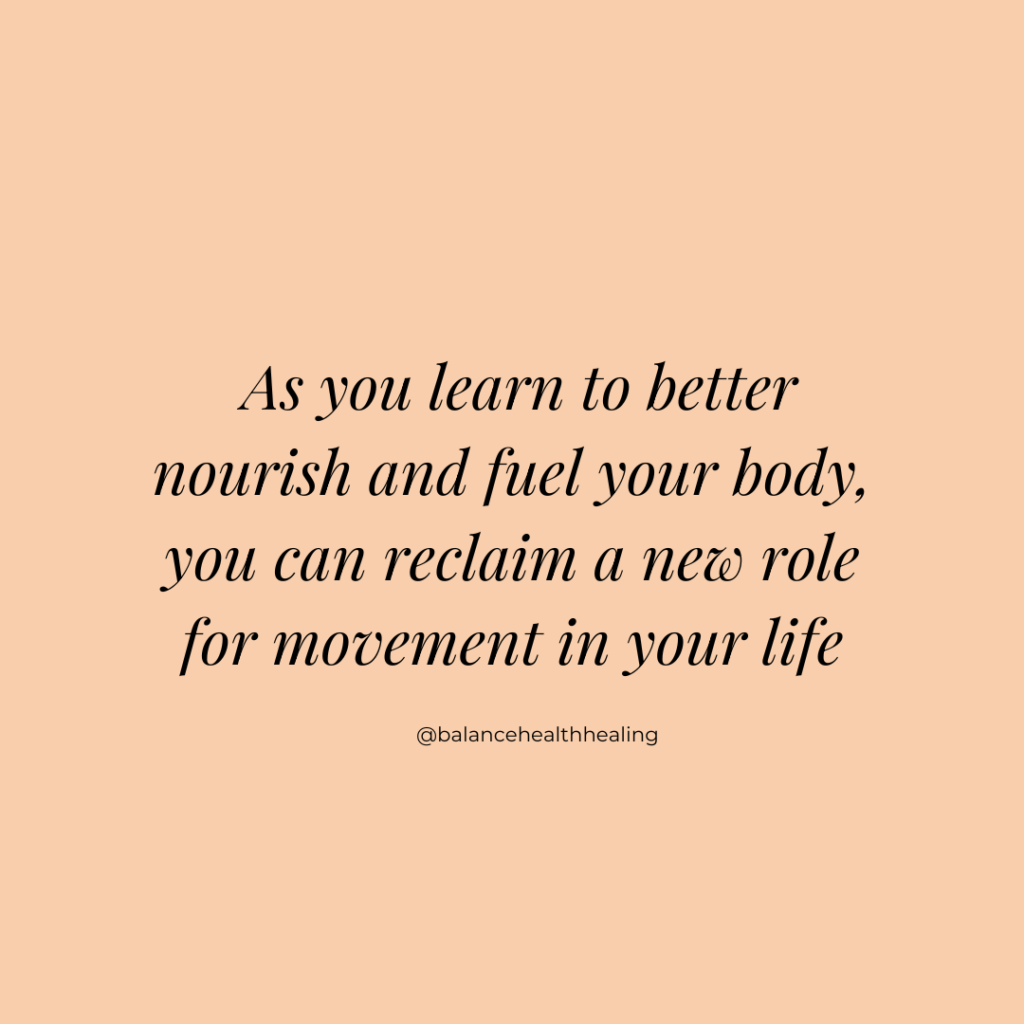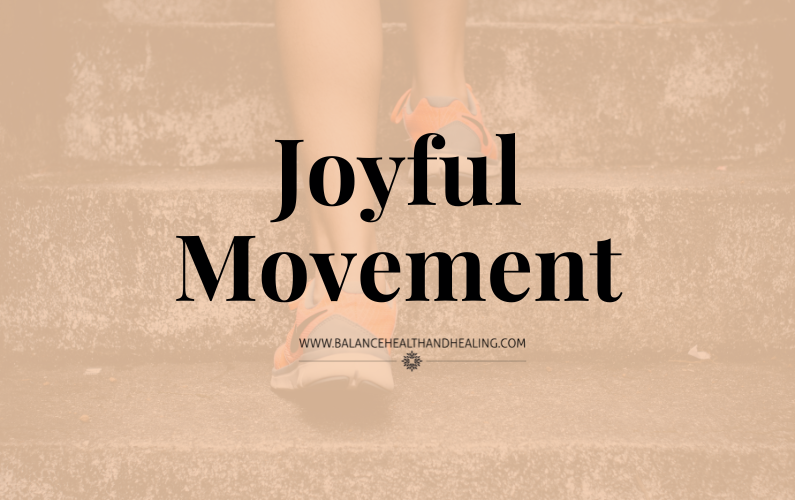In our culture, the words “exercise” or “workout” often imply punishment, burning off calories to meet metrics on our smart watches. I prefer the word movement. Christy Harrison, journalist, registered dietitian, and certified intuitive eating counselor, describes movement as “intuitive, flexible, and unrelated to diet culture.” Those in eating disorder recovery often wonder how movement can be a part of their lives again when it has historically been used as numbing, compensation, or punishment. If you are currently struggling with an eating disorder, your body needs time to rest, heal, and recover. Taking a break from movement is often necessary. As you learn to better nourish and fuel your body, you can reclaim a new role for movement in your life.
 My relationship with movement has shifted significantly over the past five years. Growing up playing competitive soccer influenced the way I viewed movement and its purpose in my life. In my younger years, I was not thinking about what my body looked like as I ran, tackled, passed, and shot. Competing in matches and practicing with my best friends was invigorating. On the field, I felt truly embodied, defined by Dr. Hillary McBride in her book The Wisdom of Your Body: Finding Healing, Wholeness, and Connection Through Embodied Living as “to be present to yourself and your experiences from the inside out.”
My relationship with movement has shifted significantly over the past five years. Growing up playing competitive soccer influenced the way I viewed movement and its purpose in my life. In my younger years, I was not thinking about what my body looked like as I ran, tackled, passed, and shot. Competing in matches and practicing with my best friends was invigorating. On the field, I felt truly embodied, defined by Dr. Hillary McBride in her book The Wisdom of Your Body: Finding Healing, Wholeness, and Connection Through Embodied Living as “to be present to yourself and your experiences from the inside out.”
As I matured, strength and conditioning training was for the sole purpose of enhancing performance; we were always taught we could push beyond the limitations of our bodies to achieve various metrics required to compete against potential opponents. In some ways, this focus on performance helped me cultivate an appreciation for my body and all she did for me. However, in the process, I became disconnected from my body, always dissatisfied with my progress and perceived weaknesses when I did not measure up.
When I stopped playing soccer after a devastating ACL injury, I wondered what purpose movement now played in my life if I was no longer training to compete at the collegiate level. With diet culture on the forefront of my mind, it was difficult to think of movement as anything other than modifying or shrinking my body. Over the years, a beautiful journey began in which I discovered my passions for hiking, yoga, rock climbing, and group classes. I reclaimed movement as joyful and connecting, energy-producing and stress-reducing!
As you reclaim the role of movement in your life, consider the following:
-How does movement promote connection with yourself and others?
-What types of movement do you find enjoyable?
-What kinds of movement help you feel more present or embodied? What types of movement are depleting?
-How/when do you notice your body craving movement or rest?
-How can you re-invite your body to join you in movement?

